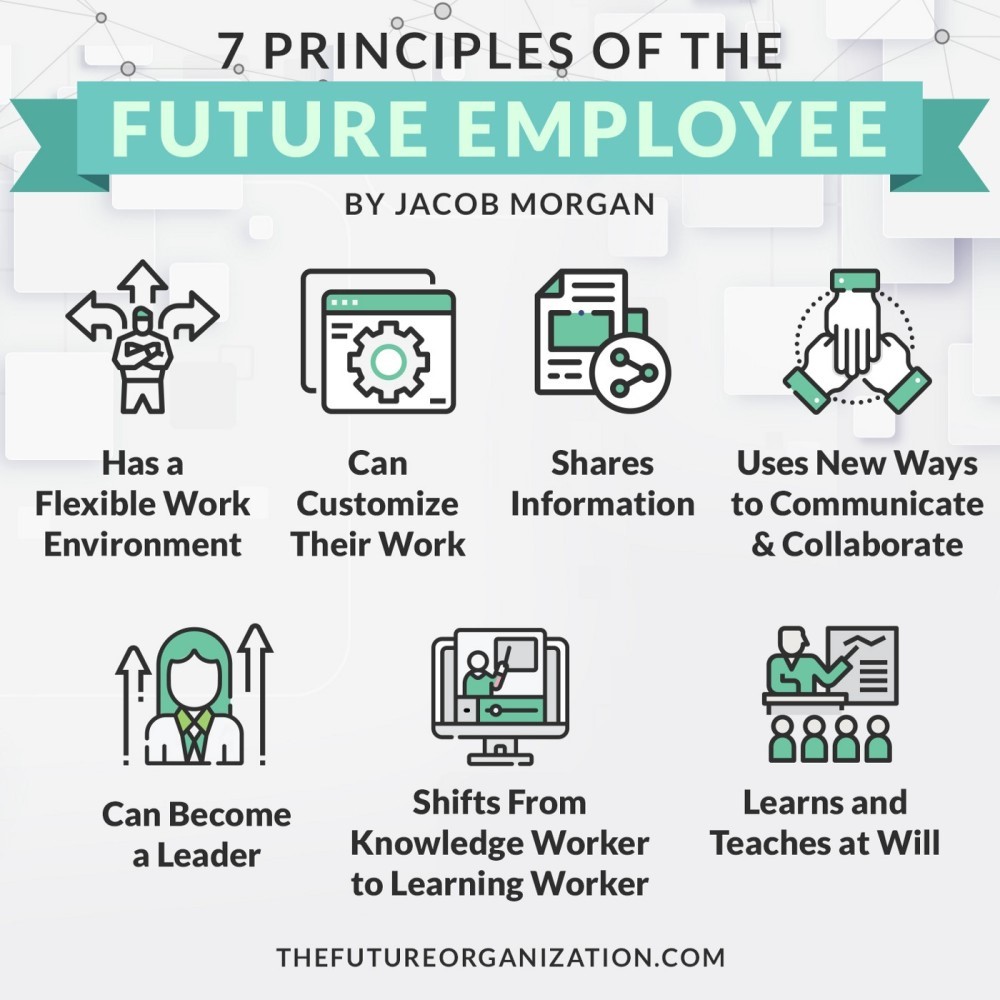Seven Principles of the Future Employee

Vector image from freepik.com
Employees Today are Dramatically Different Than They Were Even a Decade Ago
Think of how employees have had to adapt and change in the last year—employees in 2022 are different than they were at the beginning of 2020.
The world of work is constantly changing. Skills and mindsets that were long considered to be in the future are gaining steam now. To stay relevant, employees and organisations need to be aware of what to expect from future employees. And the future is now.
These seven principles of future employees are becoming true today, especially after all of the changes we’ve experienced in the last two years. These are the skills future employees need to embrace and the things companies need to consider to hire and retain the best talent.
The future employee needs to cover these seven principles:
1. Has a flexible work environment. Employees of the future won’t be bound to a desk or cubicle and will instead have the freedom to work when and where they want. We’ve seen countless companies shift to remote and flexible work during the pandemic, and many employees won’t want to go back to work in an office.
2. Can customise their own work. Future employees won’t follow the typical career path of climbing the corporate ladder. There isn’t a one-size-fits-all approach to guaranteed career success. Instead, future employees will be able to shape their career paths and choose their next projects and positions.
3. Shares information. Gone are the days of hoarding information to seem smart. Future employees share ideas and information and freely collaborate with their colleagues. The people who share information will become the next generation of leaders.
4. Uses new ways to communicate and collaborate. Instead of only relying on emails and phone calls, future employees will embrace new technology to communicate and collaborate in the most efficient ways possible.
5. Can become a leader. Future leaders have the unique opportunity to become leaders within their organisations by sharing their ideas and feedback in public ways with their peers and managers. Employees can build their own networks and get recognised for their contributions. There is no longer one path to becoming a leader—anyone can do it with the right skillset and network.
6. Shifts from knowledge worker to learning worker. The most important skill for future employees is to know how to learn. The ability to learn new things and apply them to new situations will be crucial to success. Instead of relying on what they learned in school, future employees will always be learning.
7. Learns and teaches at will. Employees no longer have to participate in formal training programs to learn. They can share information and best practices within their organisations through mentoring programs, internal collaboration tools, and face-to-face interactions. Future employees are eager to share and teach others, and they also ask questions and learn from the people around them. Future employees are eager to share and teach others, and they also ask questions and learn from the people around them.
Read more: Seven Ways Leaders Can Prepare for Post-Pandemic Times
 Seven Principles of the Future Employee
Seven Principles of the Future Employee
We’re well on our way to the future of work, and how employees work, learn, and grow will never be the same. To succeed in the future of work—now and throughout their careers—employees need to embrace these seven principles.
This article is republished courtesy of thefutureorganization.com
This article is also available in Chinese.
Functional
Tags: HR, Personal Growth, Companies, Transformation & Change, Business Management
Jacob Morgan is one of the world’s leading authorities on leadership, the future of work, and employee experience. He’s the best-selling author of 5 books including his most recent one, Leading with Vulnerability: Unlock Your Greatest Superpower to Transform Yourself, Your Team, and Your Organization which is based on over 100 CEO interviews and a survey of 14,000 employees. He is also a keynote speaker, and futurist who advises business leaders and organisations around the world. For more information, please visit thefutureorganization.com






